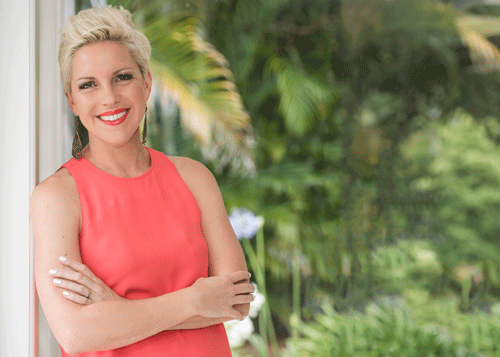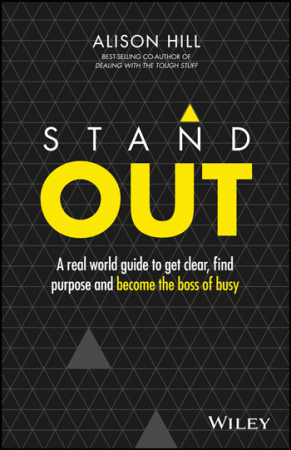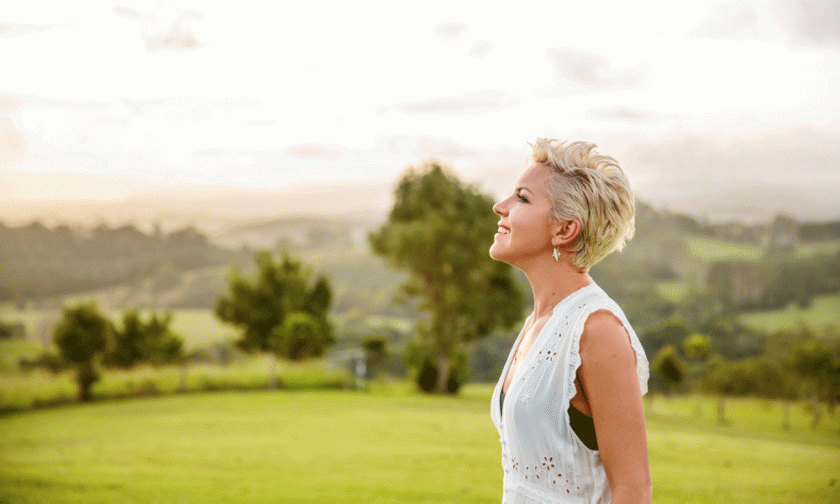The traditional 9-to-5 working day now barely exists. We’re plugged in to our devices 24/7 and losing sight of ourselves while drowning in the doing.
In this relentless environment everyone is busy, but the heavy focus on productivity over the past two decades has dismally failed.
Too many people have checked out, are burnt out or are freaking out – and we’re all suffering as a result.
It’s time to reclaim our health, happiness and sanity amid the busy-ness, according to psychologist and best-selling author Alison Hill in her new book, Stand Out, a practical guide to getting clear on what matters and stop doing the stuff that just doesn’t.
Having worked with clients such as PepsiCo, McDonalds, Siemens, Sydney Water, BHP Billiton and Bond University, Alison’s research unpacks simple models, robust diagnostics and practical strategies to help readers create change to live with real purpose and progress.
She talks to SPA+CLINIC:

S+C: Over the past 20-30 years, being seen to be uber “busy” has been regarded as almost a badge of honour by employers and employees alike. Yet, as you say in your book, this has cumulatively had a backlash effect – productivity has actually suffered as well as employee wellbeing. But it feels the tide is turning on this emphasis on being (or at least appearing to be) “busy”?
AH: We are at a point in time that we’ve never been at before; the technology we have means we can work anywhere, anytime. Our reach is wider than it’s ever been, and the disruptive few are having an impact in ways we never thought possible. All of this comes with great opportunity and convenience, and it also comes at a cost to our wellbeing.
But you’re right, the tide is turning. I believe it’s turning because it has to. This way of operating is unsustainable, and people are recognising this very quickly. More of us are demanding these conversations about how we make sure we don’t lose ourselves and the things that matter the most to us amongst the busyness. Alongside this there’s more research about how we can navigate this new terrain. Because this way of being is new we have to have a new way of engaging with it.
S+C: Do you feel some people are frightened that they will not be regarded well by their employers unless they seem to be doing more work than they can realistically cope with (or do it well, besides) and perhaps working unnecessarily long hours both at their workplace and in their own time? How can employees who feel overloaded address this with their manager(s) without risk of being seen to be shirking work?
AH: What we do is very tightly associated with who we are, our identity. In fact it’s one of the first questions you ask someone you just meet, ‘so, what do you do?’. Given this, it is understandable that people may be frightened they aren’t seen in high regard in their workplace, as it doesn’t just impact what they do, it impacts, who they are. The pursuit to at least look like we’re working hard is very high. The way to address overwhelm with your manager without being seen as someone who’s “shirking”work is to have a conversation about priorities and expectations.
Clarify with the key people at work about what the top priorities are (and this might need to be a daily conversation because the dial can shift quickly) and what level of investment is required. Spending three hours on a report that the boss only wanted you to spend 10 minutes on is a waste for everyone.
S+C: What do business owners need to understand about not overloading their staff members? Also, not falling into the trap of taking tall-talking employees’ self-aggrandisement at face value at the expense of other team members?

AH: The piece that I believe business owners miss is giving their people a big vision, something that they can buy into, something that they can be proud of being a part of. Getting more money for shareholders is not a vision people will buy into. Having something that pulls at both their hearts and minds will have your people engaged, and address a lot of the overwhelm that comes from the grind of doing the same thing day-in-day-out.
S+C: How does someone personally take control of a work and personal life that has gotten out of control by being addicted to unproductive “busyness” – and not just that fuelled by technology, but their own mindset.
AH: The mindset that I embrace is an experimentation mindset. This is about channelling our inner scientist and saying ‘I’m not sure if this is going to work, but let’s try an experiment’. Then have one week where you are going to shake up the autopilot of your life, just for a single week and be curious about what you notice (hence the experiment). In as many ways as is practically possible do things differently, do things that re-energise you. They don’t have to be big things; have dinner somewhere different (picnic in the park), get up early enough to watch the sunrise, go for a walk as you leave the office rather than go straight home, sit in a different seat at your weekly team meeting, change the clothes you normally wear, turn the TV off and go to bed earlier. It’s this disruption that allows us to see other options we may not have paid attention to previously.
S+C: What are some simple practical tips to employ in the short term to get a “busy”/panic situation into true perspective? And thus scale back the stress factor.
AH: The number one practical strategy that has revolutionised my world is delegation. Asking others for help is hard, but we know we’d be the first to put our hand up if someone else needed help. There are people who will help you if you reach out and ask. I think we get caught in the trap of “busy” and panic because we believe we have to do it all, we don’t. I rally the troops to help me out.
After delegation the other practical tip I would recommend is identify what’s the ONE THING that if you got that achieved today it would feel like success? That’s often the very thing we are putting off, but it’s really the only thing that matters that we need to focus on. Get to work getting that thing done. The final tip is realising that we’ll never get to the end of our to-do list and that is okay. Sometimes the most important thing you can do is going to bed and get a great night’s sleep.
S+C: Many people who have a million things to do and get more and more stressed by same subliminally or actively look for distractions, or “self-medicating” lifestyle habits to take the pressure off temporarily – which only creates more pressure. How does one seek to break this cycle?
AH: My three key strategies would be:
- Prioritise good quality sleep every night. This requires turning technology off for an hour before going to bed. Make this a non-negotiable.
- Put phone onto flight mode overnight.
- Before you touch any technology, spend the first five minutes of every day writing in a journal. It doesn’t matter what you write, get into the ritual and habit every morning.
S+C: Why is self care so important in this process? How do you define self care?
AH: For me self care is about listening to our inner needs, these might be our physical needs, our spiritual needs, our needs of connection with others. Give yourself permission to take care of you first, because when we look after ourselves it’s only then that we can turn up the best versions of ourselves and truly give to others.
Practically, this can be anything from stopping to make sure you have lunch during a busy day at work, to having a massage once a month, to setting clear boundaries with people around you so that you’re not living in resentment. When you pause long enough and listen often you’ll intuitively know what you need at any given moment.
In a busy environment it’s the people who take care of self who will have the competitive advantage over the tired masses.
* Alison Hill is an Australian psychologist, best-selling co-author of Dealing with the Tough Stuff. and co-founder of Pragmatic Thinking, a behaviour and motivation strategy company that carries a client list such as Pepsico, Suncorp, McDonald’s and Siemens.




